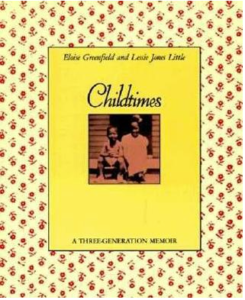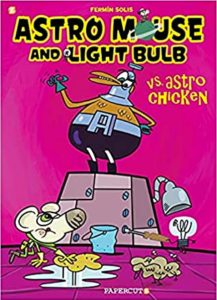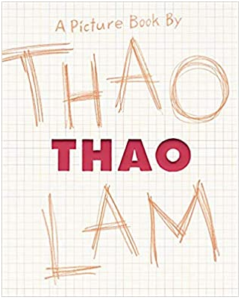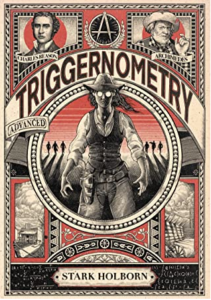Background on why I picked up this book: apparently, it was one of the three selections available to my 10 year-old for an autobiography reading assignment he had for school. I’m not sure how he wound up with this book instead of the other two, but it doesn’t really matter. What matters is that he had a really tough time answering the questions about it, typing in bizarre tautologies instead of thoughtful responses when he could even come up with anything, and I was at my wit’s end as to why… until I despairingly picked up Childtimes to skim through for answers/page numbers and found that a large portion of the assignment questions were completely irrelevant to the book!
 My best friend, on hearing me rant about generic questions that don’t seem to understand the material they’re examining, wryly noted that it seemed pretty early for class material to be teaching my kid how to bullshit his way through assignments: save that for college, no? But after I’d gotten poor Jms sorted with his homework — we left the tautologies as is: if teacher is going to ask irrelevant questions, teacher should expect ludicrous answers — I figured that since I’d already scanned through the book twice, I might as well sit down and read it through properly, my own crushing reading schedule be damned. And I’m so glad I got to read this, because it is a truly wonderful look at the lives of three generations of Black women growing up in late 19th to mid 20th century America.
My best friend, on hearing me rant about generic questions that don’t seem to understand the material they’re examining, wryly noted that it seemed pretty early for class material to be teaching my kid how to bullshit his way through assignments: save that for college, no? But after I’d gotten poor Jms sorted with his homework — we left the tautologies as is: if teacher is going to ask irrelevant questions, teacher should expect ludicrous answers — I figured that since I’d already scanned through the book twice, I might as well sit down and read it through properly, my own crushing reading schedule be damned. And I’m so glad I got to read this, because it is a truly wonderful look at the lives of three generations of Black women growing up in late 19th to mid 20th century America.
Beautifully illustrated with black and white line drawings by Jerry Pinkney, as well as with old photographs of several of the people from its pages, the book describes scenes from the childhoods, or “childtimes” as they call it, of Pattie Ridley Jones, her eldest daughter Lessie Jones Little, and her granddaughter Eloise Greenfield. Ms Jones’ section, while told in the first person, was lovingly put together by Ms Little and Ms Greenfield from manuscripts, their own memories of her stories as well as interviews with other people who knew her. Born in 1884, Ms Jones’ narrative describes growing up in North Carolina and all the good and bad of her childhood, including tales of her own mother. Ms Little’s section continues the story of their family from her childhood perspective, covering World War I and the Spanish influenza pandemic as well as the ups and downs of her parents’ marriage. Ms Greenfield’s third of the book describes her family’s move to Washington DC while she was still a kid, and how hunger and World War II affected them and their neighbors.









